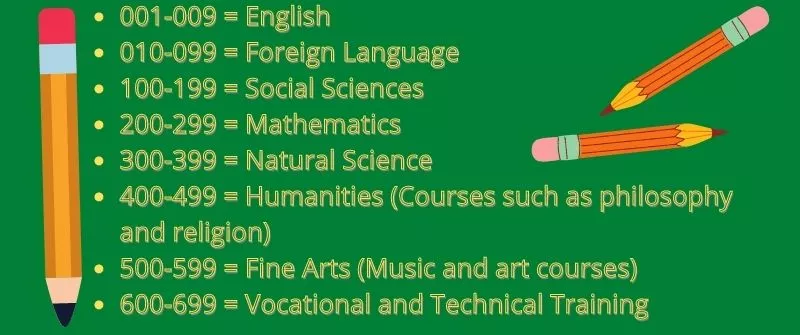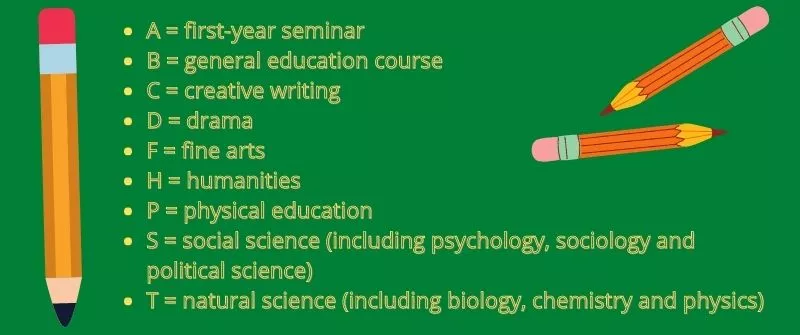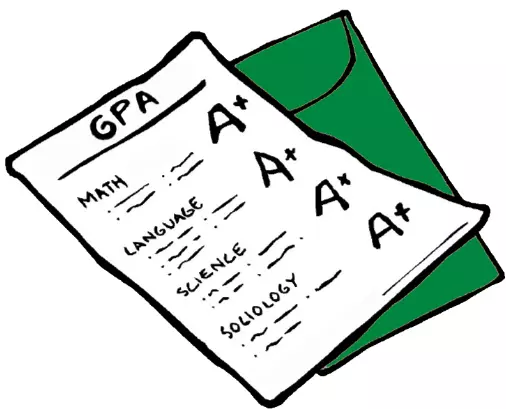TR stands for Technology Related. These are classes that have some technology involved in the learning process, such as using a computer to access information or use the software.
It does not mean that you will be using a computer all day long for every class. The reason why they focus on these technical aspects is that it has become a need today.
Importance of College Codes
- College codes are critical for college administration, transcripts, and alumni relations.
- College codes are useful to identify schools, grades, and courses. The codes are also key to identify an individual’s degree or field of study. This information is helpful in a variety of ways by colleges, high schools, prospective employers, and others.
- They also help with reporting student enrollment data to national organizations such as the U.S. Department of Education and the Council for Higher Education Accreditation
- Using college codes help in keeping records consistent between colleges and universities so that data can be accurately compared between institutions.
- It can also help prevent confusion or errors when using or sharing data.
- The use of college codes can help students and their parents make better decisions when choosing a school to attend. Many people choose schools based on reputation, location, and recommendations from family and friends
Other College Codes and their Meanings
There are several college codes that you come across frequently in your search for colleges. These codes form the basis of the information you collect while searching for a college.
The college code system is useful not only for you but also for the colleges themselves, as it enables all the details to be in a single storage system. For college students its possible to come up with their own private coded meanings. This is common in some solid college groups.
Course Codes
No matter what you study, you are going to encounter course codes.

The college uses them to assign you your classes, or they might be on a piece of paper that you have to fill out.
If you are in college or if you are teaching or planning on teaching in the future, it is important to know the meaning behind each code.
Here is a list of the most common course codes and their meanings:
001-009 = English
010-099 = Foreign Language
100-199 = Social Sciences
200-299 = Mathematics
300-399 = Natural Science
400-499 = Humanities (Courses such as philosophy and religion)
500-599 = Fine Arts (Music and art courses)
600-699 = Vocational and Technical Training
Class Codes

Many colleges and universities use a three-letter system of codes to identify classes.
The most common college class codes are:
A = first-year seminar
B = general education course
C = creative writing
D = drama
F = fine arts
H = humanities
P = physical education
S = social science (including psychology, sociology and political science)
T = natural science (including biology, chemistry and physics)
Other codes are:
W
The admissions committee placed you on the wait-list because they think you might have an outside chance of getting in at a later date.
If this happens, it is always worth checking with them again because they might take you off the wait-list depending on how many people they take off the regular applicant pool.
Read on how to write a compelling admission essay.
X
You’ve been deferred or put on hold by the college until a later date. Usually, this means that you are not quite ready for their school but they want to keep reviewing your application and see how things shake out.
They will likely offer to review your application again in six months or so if things look good in your junior year, and you.
GPA

The number stands for Grade Point Average.
We calculate GPAs by adding up all of your letter grades (A=4 points, B=3 points, etc.) and dividing that number by the total number of classes taken at UIC (including repeated courses).
It is important to note that only grades earned at UIC are useful in determining the GPA listed on your official transcript.
Check the current college grading scale.
FIP
The term FIP refers to a course that has been approved as an equivalent to a specific course at college. An FIP may be used to satisfy degree requirements or simply to satisfy a general education requirement at the college.
T-Codes
T codes are useful when colleges do not want to reveal the real reason they denied an applicant. T codes usually indicate extenuating circumstances such as low test scores or a bad high school record. They can also be useful in situations when an applicant has been upfront about an issue that the college wants to cover up.
For example, if someone was arrested for drugs or stealing, but was never convicted, a college might give that person a T code instead of an outright rejection because they don’t want that information released.
O
Early Admission. An applicant who meets high school graduation requirements, and completed the necessary college preparatory curriculum. The college accepted the candidate for admission before completing his or her senior year of high school.
FAFSA
FAFSA stands for Free Application for Federal Student Aid. This is the form you will be filling out if you want to apply for any type of grant or scholarship. If you have interest in federal student loans, you will also have to fill out the FAFSA.

Joseph is a freelance journalist and a part-time writer with a particular interest in the gig economy. He writes about schooling, college life, and changing trends in education. When not writing, Joseph is hiking or playing chess.
